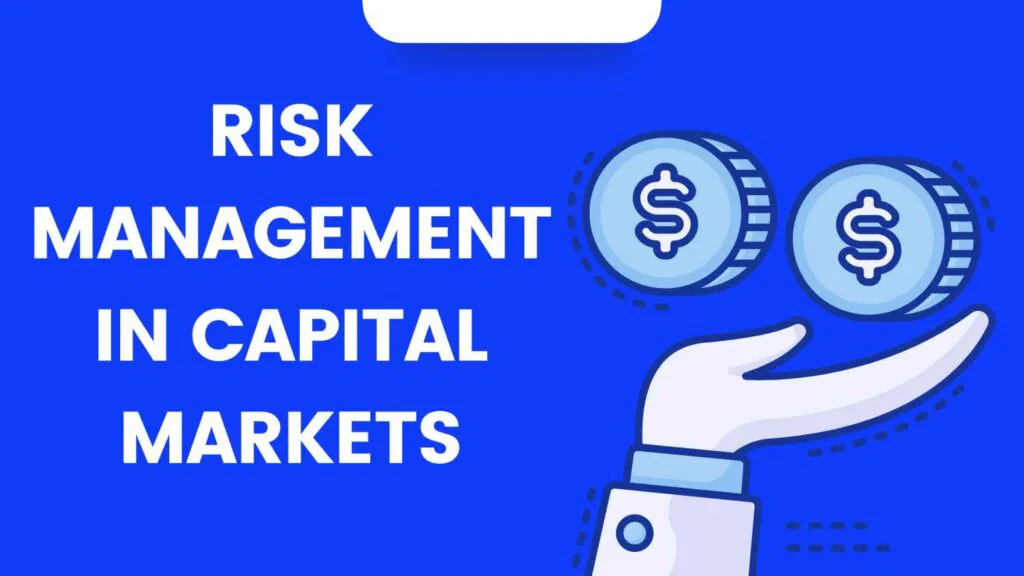In the arena of capital markets, risk management is a fundamental concept that can be regarded as one of the most essential skills for any investor or trader. Having an effective risk management strategy proves essential for safeguarding your investments, ensuring long-term profitability, and minimizing devastating financial losses whether you trading stocks, bonds, Forex, or commodities.
Risk management: what is it?
Risk management in the context of the capital market is the recognition, evaluation, and reduction of any financial hazards connected to trade and investment. From price volatility to market trends to economic data releases to geopolitical events to even psychological elements like emotions, risks can come from many sources. Good risk management is putting policies in place to reduce losses and yet allow for chances for gains.
Why is risk management significant?
1. Preservation of Capital
Preservation of Capital based on Retaining their capital is among the most crucial objectives of every investor. Setting stop-loss orders and restricting exposure to any one asset helps investor guard their money from significant, unanticipated losses. Managing risk helps traders make sure they can remain in the market longer—even during times of poor market circumstances.
2. Limiting Losses
Losses are inevitable in trading and investing; no investor can avoid them. Good risk management, however, guarantees a minimum of these losses. Position sizing and diversification help to distribute the risk over several assets lessening the effect of a major loss in any one investment. Maintaining the long-term viability of a trading or investing plan depends on keeping limiting losses.
- Lessening Emotional Bias
Emotions like hope, fear, and greed drive trading most of the time. Emotional trading decisions can result in major errors include clinging to lost positions too long or assuming too great risk in order to pursue gains. By specifying precise guidelines for when to exit a transaction, how much to risk each trade, and how to handle open positions, a structured risk management plan helps traders make more objective judgments. This discipline guarantees consistency and helps to lower emotional biases.
4. Optimizing profitability
Although reducing losses is the main emphasis of risk management, it also is rather important in maximizing profits. Those who properly control risk can seize market possibilities without unnecessarily exposing themselves. Clear risk limits help traders to aggressively pursue successful transactions knowing their downside is under control. This results in a more balanced approach whereby too great losses do not wipe off gains.
5. Surviving Market Volatility
With prices changing depending on political events, economic news, or unanticipated events like natural disasters, capital markets are by nature erratic. Inappropriate risk management can cause significant losses from market volatility very rapidly. Those that use hedging, diversification, and stop-loss orders, however, can help to reduce the impact of such volatility and guard against sharp changes in market prices.
6. Effective Leverage Management
To increase their possible earnings, many traders—especially in Forex and derivatives markets—use leverage. Leverage, meanwhile, raises the possibility of losses as well. Management of risk guarantees responsible use of leverage. Through rigorous loss limits and cautious leverage control, traders can avoid leverage wiping out their cash in one negative deal. - Engineering Long-Term Success
One trade or a brief winning run does not identify successful investors or traders. Rather, long-term success in the capital markets is based on the capacity to negotiate both winning and losing trades while expanding a portfolio over time. By use of risk management, dealers can preserve a sustainable technique, hence shielding themselves from market downturns and guaranteeing their means to seize future prospects.
Important Risk Control Strategies
1.Position Sizing:
Position sizing is the process of figuring out each trade’s relative scale to the total account balance. This helps to regulate the capital exposure to risk in every particular trade. Many effective traders advise only 1-2% of the total capital risk for each deal.
2. Stop-Loss Policies:
Automatically closing a position when the price hits a predefined threshold, a stop-loss order stops additional losses. This basic method lets traders leave a losing deal early, therefore preventing the temptation to hang on in the hope of a rebound.
3. Diversification:
Diversification is the distribution of investments throughout several markets, assets, or sectors to lessen the effect of the poor performance of any one asset. A well-diverse portfolio can assist in reducing general risk and smooth out results.
4. Risk/ Reward Ratio:
The risk/reward ratio contrasts the possible loss with the possible gain of a deal. A good risk/reward ratio (e.g., 3:1) guarantees that traders may stay profitable even if just a fraction of their deals turn out successful.
5. Hedging:
Hedging is assuming positions meant to balance possible losses in other trades. To guard a stock portfolio against downside risk, an investor can, for instance, purchase put options. Hedging lessens the effect of negative changes in prices.
Final Thought
Though it is unavoidable in capital markets, mismanaged risk can be catastrophic. Good risk management techniques lower emotional decision-making, shield traders and investors from large losses, and enable long-term profitability. Discipline and profitable trading are laid by maintaining funds, controlling volatility exposure, managing leverage, and reducing risk.
Ultimately, it’s about remaining in the game long enough to make money regularly, not only about generating money. Liocm offers the best and most professional Risk Management Training Course in Pakistan. Enroll now.
Written By Nazish Lutfi
Lutfi Institute Of Capital Market

